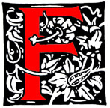At the very beginning of the second volume of The Mysteries of London Richard Markhamm Reynolds’ hero, catches sight of the terrifying Resurrection Man, warns the police, and together they visit various criminal haunts in search of him. After checking out a place favored by professional beggars who pretend to be crippled or blind, they next head to another public house where they come upon “three sisters of the respective ages of eleven, thirteen, and fourteen, were comparing the produce of their evening's avocations,—the avocations of the daughters of crime!” and figuring out how much they have left “to purchase gin,” at which point Reynolds abandons narrative and launches into a sermon that William Hogarth, the creator of Gin Lane, would certainly have applauded. — George P. Landow

or Gin is the deity, and Intemperance is the hand-maiden, of both sexes and nearly all ages in that district of London.
What crimes, what follies have been perpetrated for Gin! A river of alcohol rolls through the land, sweeping away health, honour, and happiness with its remorseless tide. The creaking gibbet, and the prison ward—the gloomy hulk, and the far-off penal isle—the debtors' gaol, and the silent penitentiary—the tomb-like workhouse, and the loathsome hospital—the galling chain, and the spirit-breaking tread-wheel—the frightful mad-cell, and the public dissecting-room—the death-bed of despair, and the grave of the suicide, are indebted for many, many victims to thee, most potent Gin!

William Hogarth’s Gin Lane. Click on image to enlarge it.
O Gin! the Genius of Accidents and the Bad Angel of Offences worship thee! Thou art the Juggernaut beneath whose wheels millions throw themselves in blind adoration.
The pawnbroker points to thee and says, "Whilst thy dominion lasts, I am sure to thrive."
The medical man smiles as he marks thy progress, for he knows that thou leadest a ghastly train,—apoplexy, palsy, dropsy, delirium tremens, consumption, madness.
The undertaker chuckles when he remembers thine influence, for he says within himself, "Thou art the Angel of Death."
And Satan rejoices in his kingdom, well-knowing how thickly it can be populated by thee!
Yes—great is thy power, O Gin: thou keepest pace with the progress of civilisation, and thou art made the companion of the Bible. For when the missionary takes the Word of God to the savage in some far distant clime, he bears the fire-water with him at the same time. While his right hand points to the paths of peace and salvation, his left scatters the seeds of misery, disease, death, and damnation!
Yes—great is thy power, O Gin: a terrible instrument of evil art thou. Thou sweepest over the world with the wing of the pestilence: thy breath that of a plague:—like the poisonous garment of Dejanira on the burning limbs of the Centaur, dost thou cling around thy victims.
And where the grave-yard is heaped up with mouldering bones—and where disease and death prevail in all their most hideous shapes—and where misery is most keenly felt, and poverty is most pinching—and where the wails of hapless children ascend to heaven in vain appeal against the cruelty of inhuman parents—and where crime is most diabolical,—there are thy triumphs—there are thy victories!
Bibliography
Reynolds, George W. M. The Mysteries of London. vol 2. Project Gutenberg EBook #51294 produced by Richard Tonsing, Chuck Greif and the Online Distributed Proofreading Team from images available at Google Books. Web. 3 August 2016.
Last modified 3 August 2016